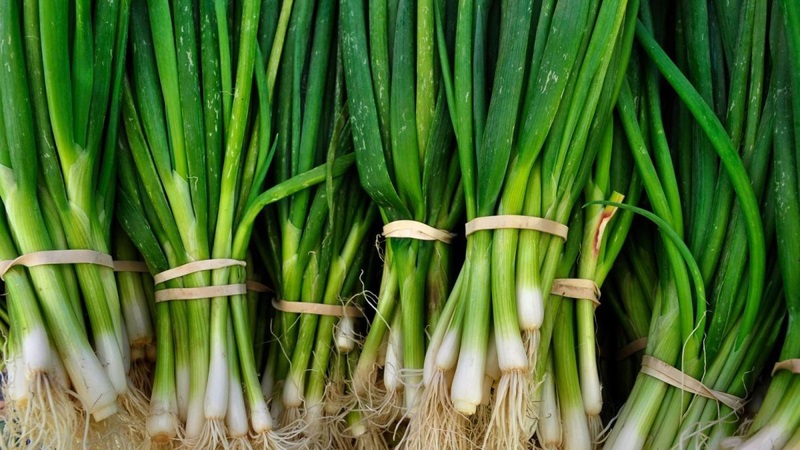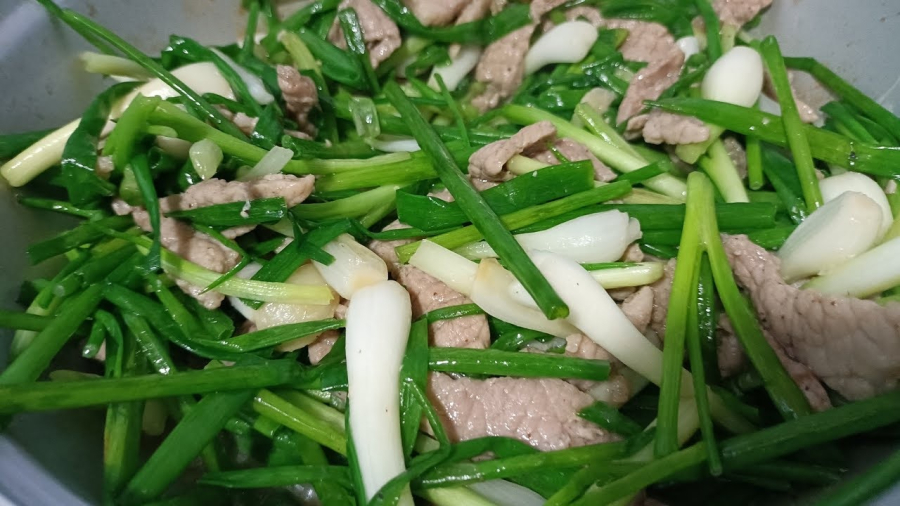Cardiovascular Health Support
The organic sulfur compounds found in scallions have been shown to reduce bad cholesterol (LDL) and increase good cholesterol (HDL), thereby preventing atherosclerosis and reducing the risk of cardiovascular diseases such as stroke and heart attack.
Scallions contain compounds that inhibit blood clot formation, promoting smooth blood flow and reducing the risk of clot-related health issues. The potassium content in scallions helps regulate blood pressure, lowering the chances of hypertension and associated cardiovascular complications.
Digestive Health
Scallions stimulate the production of digestive juices, enhance nutrient absorption, and reduce bloating and indigestion. The fiber content in scallions promotes regular bowel movements, prevents constipation, and aids in the treatment of hemorrhoids. Scallions also contain prebiotics, which serve as food for beneficial gut bacteria, helping to balance the microbiota and boost gut health.

Undervalued Vietnamese Spice: A Nutritional Powerhouse
Immune System Boost
The antioxidants present in scallions protect cells from damage, enhance immune function, and prevent infections. Allicin, a compound found in scallions, exhibits antibacterial and anti-inflammatory properties, aiding in the prevention and treatment of bacterial and viral infections.
Cancer Prevention
Research indicates that scallions can inhibit the growth of certain cancer cells, including stomach, colorectal, and prostate cancer. The antioxidants in scallions also protect DNA from damage, reducing the risk of cancer development.
Bone Health
Scallions are an excellent source of vitamin K, which is essential for blood clotting and bone health. Vitamin K acts as a catalyst, enhancing the body’s absorption of calcium. Adequate calcium absorption leads to increased bone density, resulting in stronger bones and a reduced risk of osteoporosis, particularly in postmenopausal women.
Eye Health
Scallions are rich in vitamin A, which is crucial for maintaining eye health. Vitamin A plays a vital role in producing pigments in the retina, enabling better adaptation to low light conditions and protecting the eyes from the harmful effects of blue light emitted by digital screens. Regular consumption of scallions can improve vision and lower the chances of age-related macular degeneration and night blindness.
Relieving Cold Symptoms and Reducing Fever

Scallions: A Nutritious Culinary Herb
In traditional medicine, scallions are believed to possess warming and pungent properties, making them effective in dispelling wind-cold and relieving cold symptoms. When the body is affected by cold, scallions help generate heat and improve blood circulation, alleviating symptoms such as runny nose, stuffy nose, and headaches. Additionally, the sulfur compounds in scallions exhibit antibacterial and anti-inflammatory effects, supporting the body’s defense against pathogens.





































